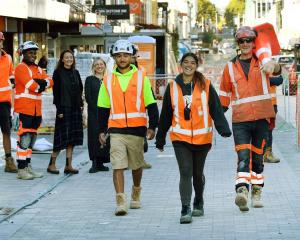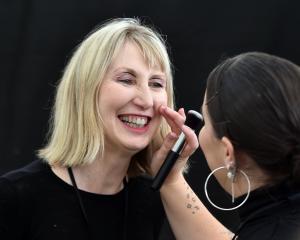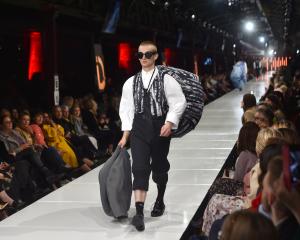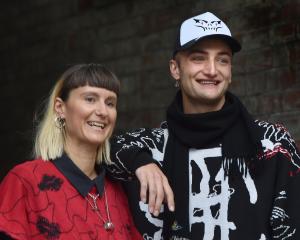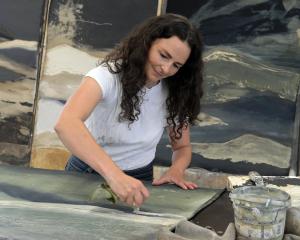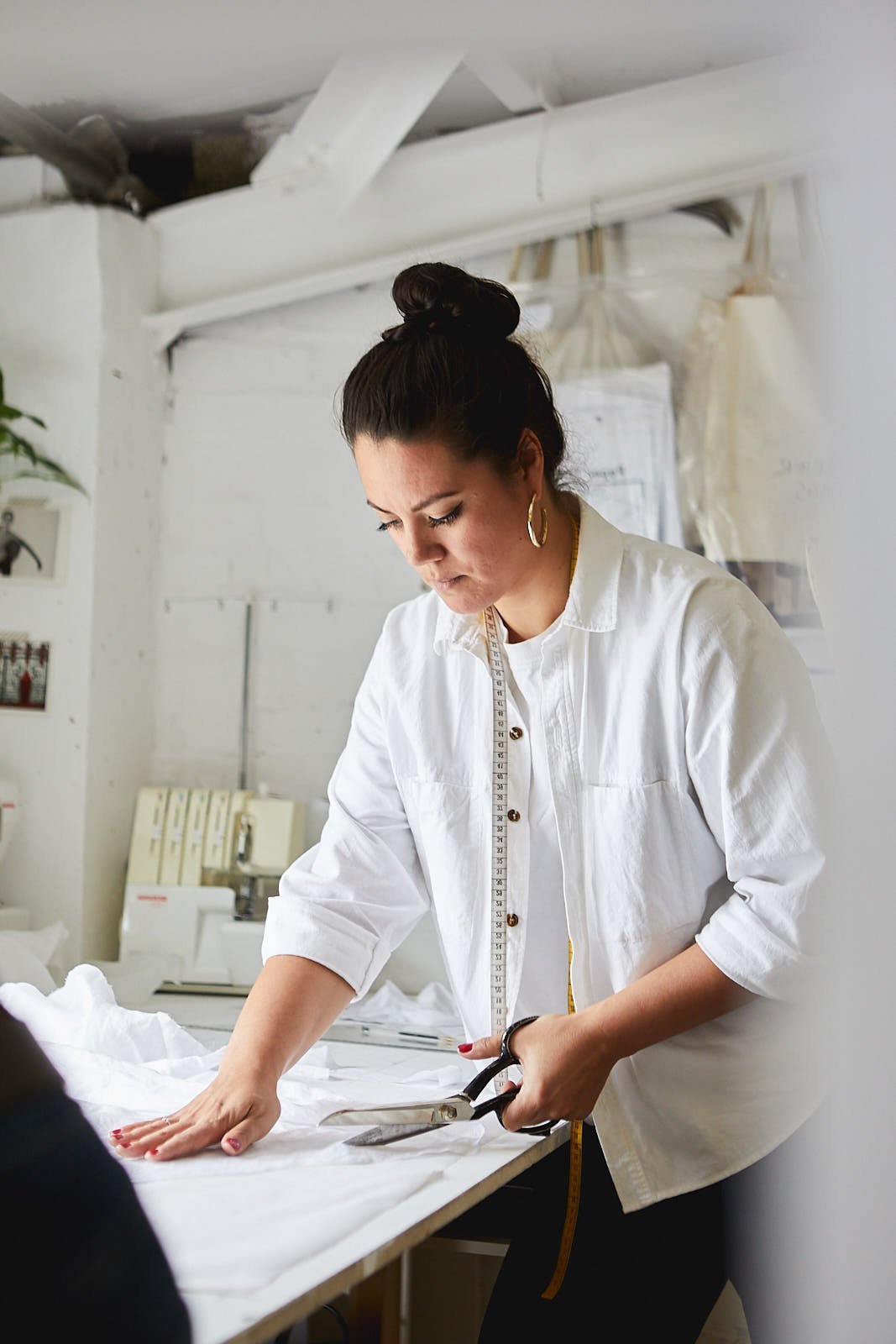
Returning to Dunedin after almost 20 years away, designer Tara Viggo talks about how she has "slowed fashion down". Josie Steenhart reports.
"It's been almost 20 years since I first left Dunedin and actually, I have now lived in London for almost as many years as I have in Dunedin," muses Tara Viggo, from the "cute little 1940s house with a view of the harbour, two streets away from my parents" where she’s lived with partner Dimitri, 3-year-old daughter Kairangi and "dear little cat" Riot since they arrived from the UK in October 2022.
Having headed abroad in 2006, "hoping to gain experience working in the international fashion industry" and with a picture of what that world looked like gleaned from glossy magazines and global catwalks, Cook Islands-born, Dunedin-raised Viggo has returned just as passionate about her place in the industry, but with an entirely different outlook.
"As a kid who grew up reading Vogue and watching FashionTV, that glamour seemed so unimaginable from my day-to-day life in Dunedin. European catwalks had always seemed magical and mysterious to me."

Armed with a bachelor of fashion from Otago Polytechnic and a door-opening award from the inaugural iD Dunedin Emerging Designer Awards (to show her collection at Mittelmoda, a world-renowned fashion competition held in Italy), she headed to Europe hoping to immerse herself in a bit of the magic, but also with more practical goals in mind.
"I knew the large size and scale of businesses in Europe meant that I would have a greater chance of seeing the full spectrum of job roles and have a greater chance of finding my feet inside someone else's business.
"Many of my graduating classmates were intending on setting up fashion brands straight out of school, but I wanted to learn more before I was ready to jump in."
Viggo says it took "a long time and many years of waitressing to supplement my salary", but she eventually managed to work her way up the ladder to "working on collections for London Fashion Week for some of the biggest and most exciting designers".
But it wasn’t the glamorous world the girl from Down Under had expected.
"I learnt a tonne and met all sorts of weird and wonderful people, but the glamour and mystery had completely disappeared and I found the continual cycles of Fashion Week a bit relentless and pointless after a while.
"I was also very uncomfortable about all the waste, and I was noticing the issues with sustainability that I had no idea about before I started my career."
Feeling disillusioned, but still with a passion for fashion, in 2017, she set up her own business, aiming to "help give people more options for dressing sustainably".
Targeting home sewers, Paper Theory sells "slow patterns" a choice of downloadable digital or paper clothing patterns for cool, contemporary, effortlessly stylish clothing, from pocket skirts, PJs and pullovers to tees, shirts and even undies.
"Paper Theory was created in a quest to help those who want to check out of the fast fashion system, but don't want to check out of fashion altogether," explains the website blurb.
"Slowing fashion down is not about nostalgia or harking back to better days - it's about pushing the social compass forward and creating systems that work for our future."
"Sustainability is extremely important to me and it's the driving force behind Paper Theory," Viggo adds.
"I think not doing any harm to others or the planet should be the absolute bare minimum standard to be allowed to register or trade as a business, and I truly believe it's possible to create an industry that creates positive impact for people and on the planet."
The business was gaining momentum and a growing following, but with a new baby and sides of tumultuous politics and global pandemics thrown in, it was time for Viggo to come home.
"After the birth of my daughter in 2020, my partner and I decided it was time to move back, although it took us almost three years of trying to eventually be able to slip back through New Zealand's closed borders.
"There were many reasons for wanting to come home - the pandemic, the political landscape in the UK and Brexit had changed London - but the main reason was that it was important for me that my daughter would understand her Polynesian culture.
"One of the most important cornerstones of our culture is family and I wanted her to grow up as part of a large multi-generational family and be close to the ocean."
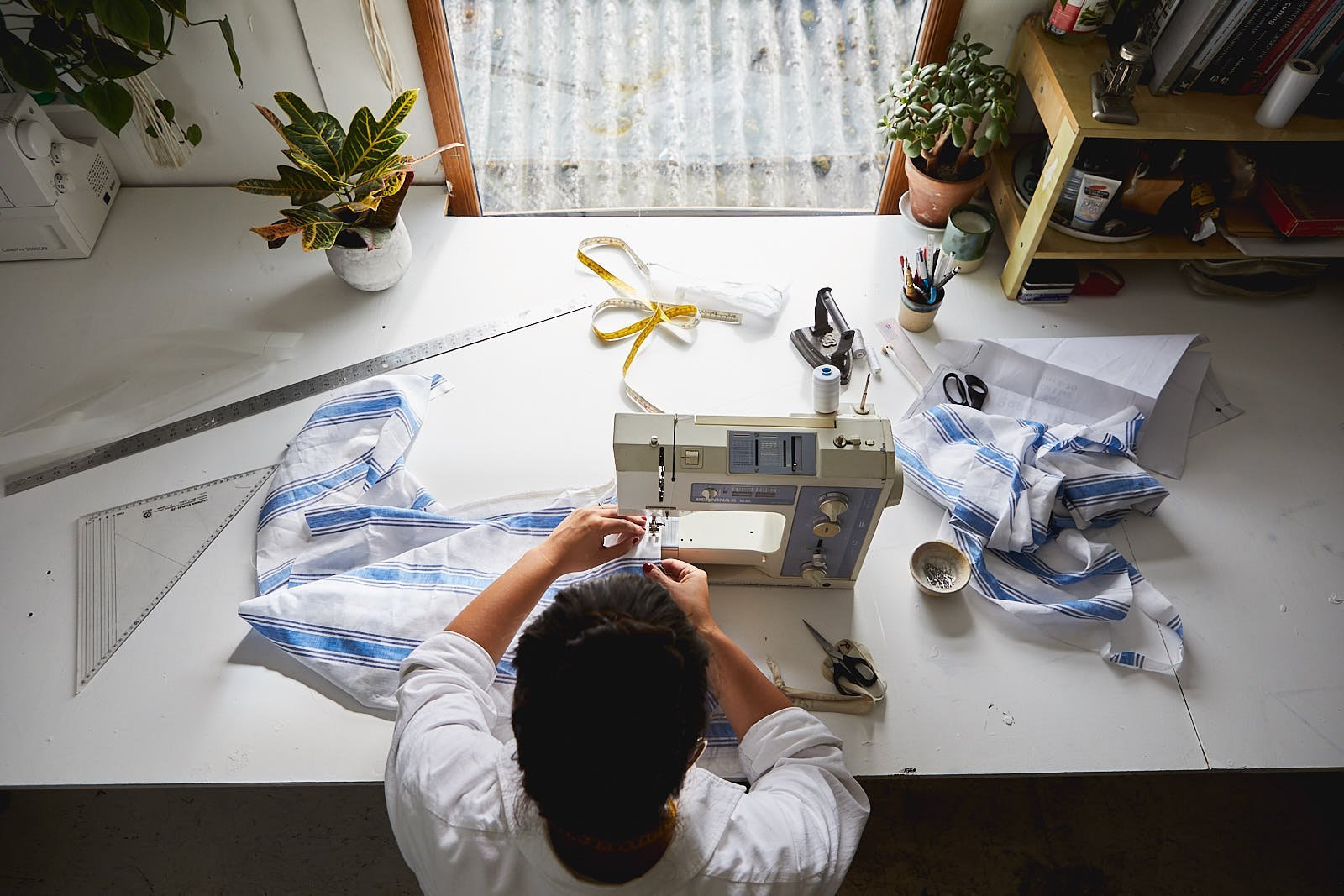
"It took four and a-half months for our belongings to arrive from England, so I’m still unpacking boxes and setting up all my sewing and studio equipment.
"I am absolutely loving being back in Dunedin. The pace of Dunedin matches my desires for a slower, more intentional life and provides lots of time outside with nature.
"I will miss the diversity of London, specifically the diversity of people and culture and ideas - and cheap European cheese - but the trade-off to be near my family is worth it."
She’s also "very recently" joined the governing board for the iD Dunedin Fashion Committee, "which has been a wonderful crash course in updating me on the who's-who and what's- happenings of the New Zealand fashion scene, as I was quite out of touch when I arrived".
"iD Dunedin was the first fashion show I ever attended as a spectator when I was a first-year fashion student in 2002. To say I was inspired is an understatement.
"Then in 2005, I was a finalist in the inaugural emerging designer's competition. Winning an award in this competition led to an explosion of stepping stones and opportunities for me and had a huge impact on forming my career. One of my favourite opportunities that came from this was a work placement in Milan with Marni.
"Due to my involvement in the 2005 competition, Otago Polytechnic had always kept in touch with me and when I returned to Dunedin last year, Margo Barton [academic leader for fashion at Otago Polytechnic] got in touch and asked me to help select the entries and judge the 2023 Emerging Designers competition.
"It was a huge honour to then be nominated to the board, as iD has such an important role in Dunedin's heritage. The main purpose of the iD Dunedin fashion show is to promote and raise the standard of fashion design in New Zealand education and industry, so to now be involved in helping assist current students and designers to grow and thrive feels like a very full circle moment."
She’s also ensuring the event, celebrating its 23rd year in 2023, is up to scratch when it comes to sustainability.
"Sustainability for future shows is really important for iD, and we have a two-pronged approach to tackle it. Firstly it's encouraging participating designers to show collections that are as sustainable as possible. This year for the first time, all the emerging designers had to provide a sustainability statement to enter the competition.
"From a host's side, we’re taking our responsibility to create a catwalk show that is sustainable seriously.
"This year were replacing all plastic drinking vessels in the bar with reusable glass Keep Cups for guests, and were partnering with Aleph and Davines for sustainable vegan makeup and haircare.
"As part of the week's events, I’ll be hosting a panel talk with designers and sustainability experts to discuss where we are all at as an industry.
"With regards to the less glamorous behind-the-scenes aspects, we’re in the process of organising a waste audit of the show this year so we know where we stand and can set measurable goals and standards for reducing our impact at future shows."



